
Southern white rhinos are widely known as a conservation success story. Their population grew from fewer than 100 individuals in the 1920s to 20 000 in 2012, mostly in South Africa.
This success was partially due to the inclusion of the private sector, which started in the 1960s when white rhinos were moved from their last remaining population in Hluhluwe-iMfolozi Park and placed in other state reserves as well as on private land. In 1991, the Game Theft Act formalised conditions for private rhino ownership and use. Poaching pressure was low at the time, and the demand for rhinos by ecotourists and trophy hunters gave private landowners incentives to grow their rhino populations.
Based on publicly available data, our recent paper shows that, today, private landholders conserve over half of South Africa’s white rhinos. Communities conserve a further 1% of the white rhinos. This trend is not unique to South Africa: more than 75% of Zimbabwe’s and Namibia’s white rhinos are on private lands. Although outside their natural range, in East Africa 72% of Kenya’s white rhino populations are conserved by private landowners.
In South Africa, the increasing contribution of private rhino custodians over the past few decades is due partly to their success and partly to shrinking rhino populations in key state parks. Poaching is largely to blame for shrinking populations. A decade ago, the two-million-hectare Kruger National Park held over half of the world’s 20 000 white rhinos. Today the park has just over 2 000 of the remaining 16 000 white rhinos. Kruger lost 6% of its population to poaching in 2020 alone. Hluhluwe-iMfolozi Park has suffered similar declines.
This story is from the Farmer's Weekly 7 July 2023 edition of Farmer's Weekly.
Start your 7-day Magzter GOLD free trial to access thousands of curated premium stories, and 8,500+ magazines and newspapers.
Already a subscriber ? Sign In
This story is from the Farmer's Weekly 7 July 2023 edition of Farmer's Weekly.
Start your 7-day Magzter GOLD free trial to access thousands of curated premium stories, and 8,500+ magazines and newspapers.
Already a subscriber? Sign In
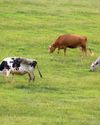
Africa goes from net carbon sink to source
New research shows Africa's impact on greenhouse gases and the need to focus on climate-smart agriculture
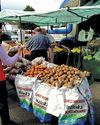
Ireland potato farmers unable to complete planting
Irish potato farmers have reported a delay in harvest and said that the UK might have to prepare for shortages of the produce. The shortfall is due to extreme wet weather during their planting season.
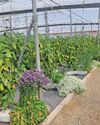
Zero-residue fresh produce a reality
Retail giants are calling for caution when using biologicals and chemical pesticides,

Big boost for mohair producers in Eastern Cape
A collaboration between the Eastern Cape Development Corporation (ECDC) and the Mohair Empowerment Trust (MET) has resulted in a R1,4 million injection into four emerging Angora goat farming operations in the Eastern Cape.
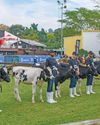
KZN Youth Show at Roval Agricultural Exhibition
The KZN Youth Show will run from Friday, 24 May to Sunday, 26 May at the Royal Showgrounds in Pietermaritzburg.
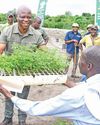
Hemp permits and irrigation system handed over
In an effort to fast-track the entry of rural farmers into the cannabis and hemp industries, KwaZuluNatal Minister for Agriculture and Rural Development, Super Zuma, visited the Shukasibheme Project in Mbazwana, a co-operative in Mseleni, uMhlabuyalingana in the Umkhanyakude District, to hand over cannabis and hemp permits as well as a borehole and irrigation system.

Meet some of the heroes behind avitourism destinations
Exploring what the Garden Route offers birdwatchers, Brian Berkman discovers some special people who run hospitable places to meet and see a variety of species.
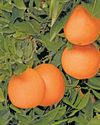
What the Citrus Academy offers aspiring producers
Cobus du Plessis takes a look at the Citrus Growers' Association of Southern Africa's Citrus Academy and how it is helping to develop aspiring farmers in the sector.

Natural-born killers of the insect world
The Myrmeleontidae family of lacewings from the Neuroptera order of insects consists of about 2 000 species of which 125 are found in South Africa.
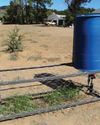
Seeder kick-starts vegetation in challenging environments
Dr George Craven of Noorspoort, Steytlerville, in the south-eastern Karoo, is successfully using a home-built 'bedstead seeder' to re-establish veld plants in an arid area, writes Roelof Bezuidenhout.